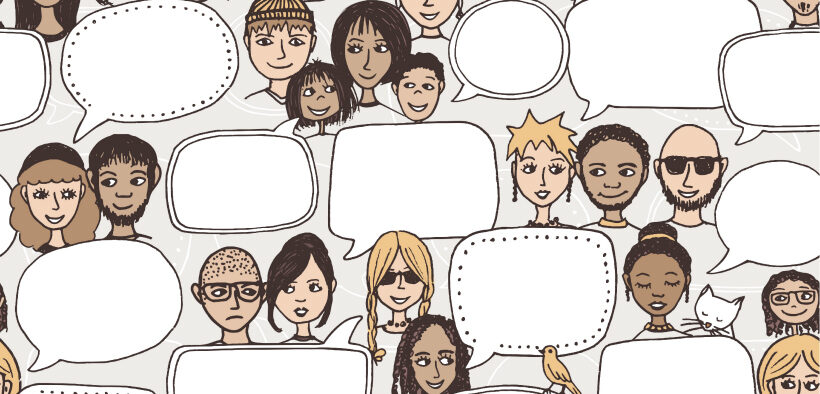We who work in higher education are constantly using and learning academic English, often without realizing it. We may not realize that the way we speak English is quite challenging to many students who don’t speak this way at home. College students who struggle to communicate fluently in academic English often experience lowered expectations from professors, stereotyping, and other forms of discrimination without their teachers being aware of their own biases (Lippi-Green, 2011). Research has shown that college professors tend to show positive bias toward students who sound like themselves and negative bias toward those who don’t (Godly et al., 2006). Students may absorb some of these negative messages and become reluctant to participate, which limits their ability to expand their language lexicons. In effect, our insensitivity to academic language can silence our students and limit their capacity to demonstrate their knowledge or skills. This may in turn limit a student’s view of themselves as a competent member of the community, with the same bright dreams and future ambitions as their peers.
Considering Language When Creating Inclusive Learning Environments

- Tags: inclusive classroom
Related Articles
I have two loves: teaching and learning. Although I love them for different reasons, I’ve been passionate about...
Imitation may be the sincerest form of flattery, but what if it’s also the best first step to...
Higher education has long recognized the value of Socratic dialogue in learning. Law schools traditionally adopt it in...
After 35 years in higher education, I continue to embrace the summer as a prime opportunity to strengthen...
Last month I wrote about how students fool themselves into thinking they have learned concepts when they really...
If you’ve ever hesitated to offer feedback to a colleague for fear of creating tension or hurting a...
When I first began teaching online, I thought creating engaging and relevant content was the biggest challenge. And...









2 Responses
Great article. I teach at a school with many international students. In class I tell them they can speak aloud first in their native language, then translate for the rest of the us, as I understand the challenge of speaking in a second language when conversation moves quickly. When students do this they are so grateful, and we all have a deeper appreciation of learning in a second language.
Elizabeth, I love this strategy! Thanks for sharing it. What a wonderful way to honor the mother tongue and remind everyone of the value of bilingualism.